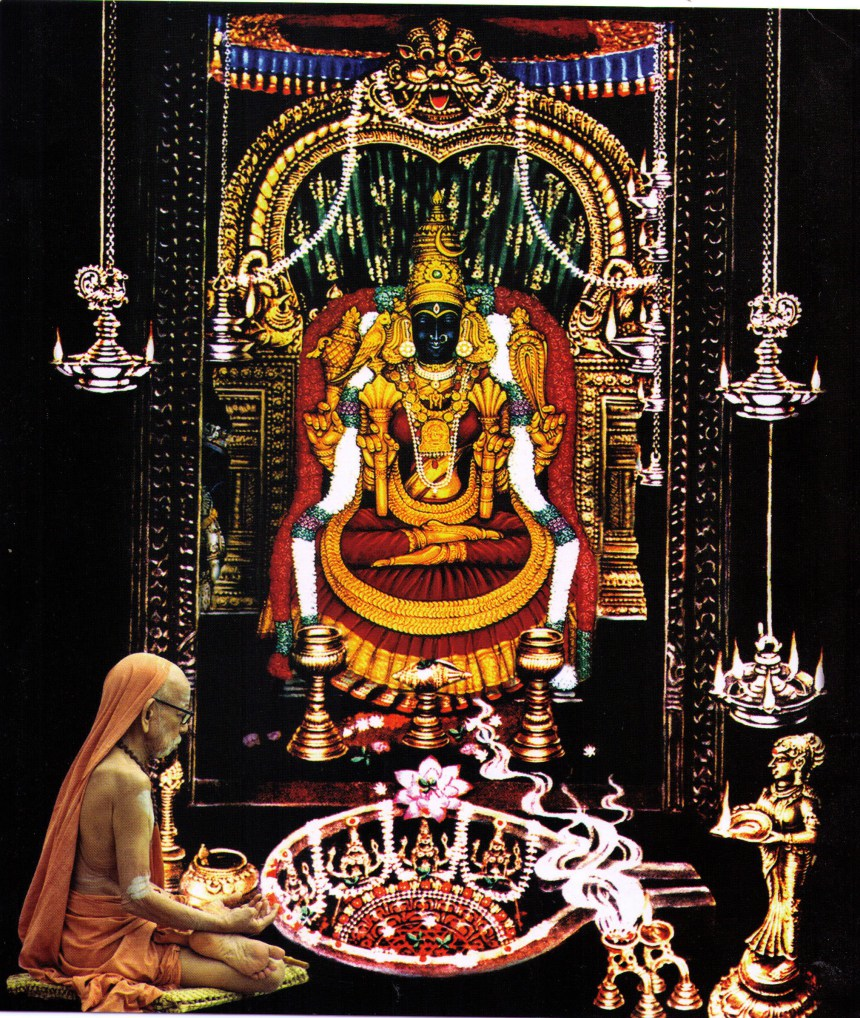An argument runs thus: In the eons gone by mankind possessed high ideals and noble character. Men could sacrifice animals for the well-being of the world because they had great affection in their hearts and were selfless. They offered even cows and horses in sacrifice and had meat for sraddha. As householders, in their middle years, they followed the karmamarga (the path of works) and performed rites to please the deities for the good of the world. But, in doing so, they desired no rewards. Later, they renounced all works, all puja, all observances, to become sannyasins delighting themselves in their Atman. They were men of such refinement and noble character that, if their brother, a king, died heirless they begot a son by his wife without any passion in their hearts and without a bit detracting from their brahmacharya. Their only motive was that the kingdom should not be plunged in anarchy for want of an heir to the throne.
In our own Kali age we do not have such men who are desireless in their actions, who can subdue their minds and give up all works to become ascetics and who will remain chaste at heart even in the company of women. So it is contended that the following are to be eschewed in the Kali age: horse and cow sacrifices, meat in the sraddha ceremony, sannyasa, begetting a son by the husband's brother. As authority we have the following verse:
Asvalambham gavalambham sanyasam palapatrikam
Devarena sutotpattim kalau panca vivarjayet
According to one view "asvalambham" in this verse should be substituted with "agniyadhanam". If you accept this version it would mean that even those sacrifices in which animals are not killed should not be performed. In other words it would mean a total prohibition of all sacrifices. The very first in the haviryajna category is agniyadhana. If that were to be prohibited it would mean that, apart from small sacrifices called "pakayajnas", no yajna can be performed.
According to great men such a view is wrong. Sankara Bhagavatpada, whose mission in life was the re-establishment of Vedic dharma, did not stop with the admonishment that Vedas must be chanted every day ("Vedo nityam adhiyatam"). He insisted that rites imposed on us by the Vedas must be performed: " "Taduditam karma svanusthiyatam. " Of Vedic rites, sacrifices occupy the foremost place. If they are to be eschewed what other Vedic rites are we to perform? It may be that certain types of sacrifices need not be gone through in the age of Kali.
If, according to the verse, agniyadhana is interdicted, and no big sacrifice is to be performed in the age of Kali, why should gavalambha (cow sacrifice) have been mentioned in the prohibited category? If agniyadhana is not permissible, it goes without saying that gavalambha also is prohibited. So, apart from certain types, all sacrifices are to be performed at all times.
According to another verse quoted from the Dharmasastra, so long as the varnasrama system is followed in the age of Kali, in however small a measure, and so long as the sound of the Vedas pervades the air, works like agniyadhana must be performed and the sannyasasrama followed, the stage of life in which there is no karma. The prohibition in Kali applies to certain types of animal sacrifices, meat in sraddha ceremonies and begetting a son by the husband's brother.

